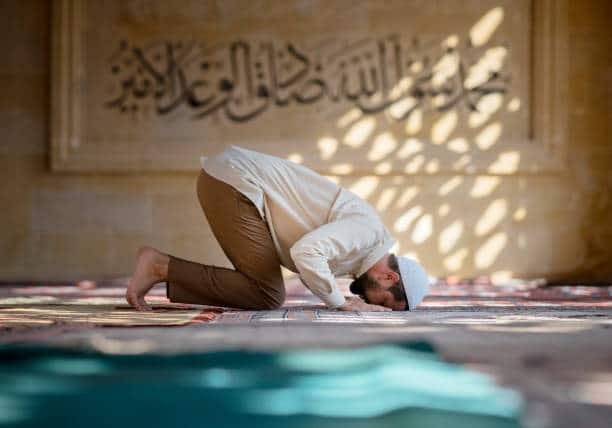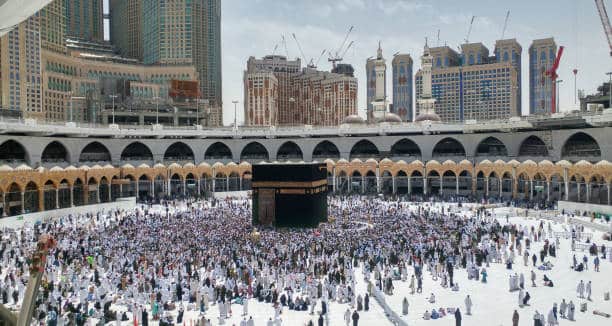Why do Muslims around the world celebrate Ramadan in the ninth month of the Islamic calendar? Is it regarded as a special month because spiritual contemplation, self-discipline, and altruism are encouraged as part of the Sunnah and Ramadan traditions?
No matter their country of origin or race, Muslims around the world observe Ramadan as one of the Sunnah of Islam and the period of fasting. Throughout this month, Muslims observe fasting, which entails skipping meals, drinking, after Suhoor, and other necessities from sunrise to dusk. These are just a few of the numerous reasons we will discuss in this post.
Fasting is one of Islam’s five pillars and is seen as a kind of prayer that helps to discipline oneself and purify the soul. A further benefit of fasting is that it serves as a reminder of the plight of those who are less fortunate and lack access to food and water.
Ramadan is a time for spiritual contemplation and reflection as well. Muslims increase their prayer and Qur’an recital during this month. Muslims use this time for reflection on their connection with Allah and ask forgiveness for any transgressions.
This is a time when Muslims can deepen their faith in their religion and become closer to Allah. Ramadan is a time for community and solidarity, which Muslims use to eat the Suhoor, a breakfast eaten before dawn during Ramadan, after which people fast until after sunset, breaking their fast collectively at dusk, and it is typical for families and friends to get together for the evening meal, known as iftar.

RAMADAN: WHAT IS ITS IMPORTANCE IN MUSLIMS’ FAITH?
History of Ramadan Fasting
Fasting during Ramadan has its roots in early Islamic history, specifically in the seventh (17th) century. Ramadan is thought to be the month when the Angel Gabriel revealed the first verses of the Qur’an to Prophet Muhammad (peace be upon him), in accordance with Islamic tradition.
The second year after the Prophet (pbuh) moved from Mecca to Medina is when the custom of fasting throughout this month was first established. Muslims were instructed to fast as a means of soul purification and a deeper relationship with Allah.
One of the Five Pillars of Islam, which are the cornerstones of the Islamic faith, is the practice of fasting throughout the month of Ramadan. Since the Quran states that fasting has been prescribed to Muslims as it was to those who came before them, historic religious organizations have long engaged in this practice.
Even the Bible mentions fasting, characterizing it as a way to express devotion to God. Together with its religious significance, many Muslim communities practice fasting throughout Ramadan for social and cultural reasons.
During this season, friends and family get together for meals and philanthropic endeavors. Also, Muslims utilize this time to reflect on their actions and concentrate and apply patience to strengthen their moral character in order to uplift their spiritual growth.
PROPHET MOHAMED’S STORY ON RAMADAN’S PHILANTHROPIC GESTURE

The Prophet Muhammad once witnessed a hungry person begging for food during the month of Ramadan. He could hardly stand up due to his extreme hunger. He was approached by the Prophet Muhammad (pbuh), who questioned him about why he was begging.
The man claimed that he was so weak from hunger that he could not move and that he had neither food nor money to buy it. The man was invited to the Prophet Muhammad’s home for iftar, the meal that breaks the fast during Ramadan since the Prophet felt deeply sorry for him.
The invitation was accepted by the ecstatic man. The Prophet Muhammad’s wife, Aisha, had made a simple meal of dates and water when they got to the Prophet’s house. While giving the impoverished man dates and water, the Prophet Muhammad (pbuh) himself consumed very little food.
The hungry man left after the meal, feeling satisfied and appreciative, and thanked the Prophet. The Prophet Muhammad met the same beggar again the next day. He questioned him over his absence from his home the night before iftar.
The man responded that he had been too feeble to ask anyone and that he did not know who the Prophet Muhammad (pbuh) was or where he resided. This pained the Prophet Muhammad, and he decided to have mercy for the needy man permanently. He requested that his friends track down the man and take him to the mosque.
The Prophet Muhammad handed him a plot of land and some seeds as part of his mercy for the man when he arrived at the mosque and provided him with instructions on how to plant the seeds and raise crops. The man followed instructions, and with the assistance of the neighborhood, he was able to raise enough food for himself and his family.
The poor guy received immense kindness from the Prophet Muhammad (pbuh), who also assisted him in developing self-reliance. Together with generosity and helping those in need, especially during the month of Ramadan, he taught his associates and followers these virtues of charity.
THE BENEFITS OF RAMADAN FASTING
The holy month of Ramadan is a beneficial period for Muslims all around the world. While many people know about the religious significance of Ramadan, there are numerous benefits that come with observing this holy month.

Detoxification and Mental Health Benefits
The advantages of fasting for one’s physical and emotional well-being during Ramadan are among its most important benefits. Muslims refrain from eating and drinking throughout the holy month of Ramadan, which lasts from sunrise until sunset.
Clarity of thought and focus are improved, and the body is detoxified as a result. In addition to teaching self-control, fasting also has the power to end addictions and unhealthy habits.
Sense of Togetherness
The sense of camaraderie and solidarity that comes with Ramadan is another advantage. Muslims break their fast collectively at dusk, and it is typical for families and friends to meet together for the evening meal, known as iftar.
Also, several mosques serve iftar meals to the general public. This component of Ramadan that is communal helps Muslims feel more united in embracing family values and encourages social harmony.
Spiritual upliftment and Introspection
A chance for spiritual development and introspection is also presented by Ramadan. More prayers and Quran recitations take place during this month for Muslims. Muslims should concentrate on their relationship with Allah during this period.
Also, to ask Allah’s forgiveness for any transgressions they may have committed. In addition, it offers Muslims a chance to reaffirm their religious convictions and enhance their ties to Allah.
The Spirit of Charity (Zakat) and Personal Growth
Muslims are urged to donate to worthy causes and help people in need. Islam places a high value on Zakat the act of giving to others and providing aid to those in need. These actions also assist in establishing ties between Muslims and the larger community. They also raise the potential for advancement and personal growth.
Muslims strive to better themselves while concentrating on their beliefs and their relationship with Allah. This can take many different forms, such as quitting undesirable behaviors or making an effort to improve oneself as a whole. Gratitude to Allah during Ramadan is also enriched in this month.
WHY DO MANY MUSLIMS PERFORM LESS HAJJ DURING RAMADAN?
Muslims can travel to the Saudi Arabian holy city of Mecca at any time of the year to perform the lesser hajj, also known as the Umrah. Although Ramadan is thought to be a particularly fortunate time to perform Umrah, many Muslims opt to do so during that month.

Spiritual Significance of the Month
Because of the spiritual significance of the month of Ramadan, Muslims often conduct Umrah during this time. The month of Ramadan, which is regarded as the holiest in the Islamic calendar, is a time for spiritual contemplation, self-control, and almsgiving.
Muslims think that making the Umrah during this month will improve their spiritual rewards and enable them to atone for their transgressions.
Smaller Crowd in Mecca
The smaller crowds during Ramadan are another factor that encourages some Muslims to conduct Umrah. Even though Umrah can be carried out at any time of the year, it is a very well-known pilgrimage that draws millions of Muslims from all over the world.
The number of Muslims undertaking Umrah during Ramadan is less than that of the larger hajj, Dhul-Hijjah because many Muslims prefer to concentrate on fasting and other religious observances during this time. For individuals who choose to conduct Umrah during this time, this can make the experience less hectic and more tranquil.
Combination of Two Significant Worships
Muslims have the chance to combine two important acts of worship by performing Umrah during Ramadan. Muslims can combine two important acts of worship—fasting during Ramadan and traveling for Umrah—into one month by doing both during this time. For those who make the voyage, this may give them a feeling of success and fulfillment.
The Muslim Connection and Mecca Visitation
Making new friends from all over the world and visiting Mecca, the holiest city for Muslims, while performing Umrah during Ramadan are two fantastic benefits. Ramadan Umrah may be a profoundly moving experience that gives Muslims a chance to genuinely interact with their religion and with other Muslims.
When Muslims travel on a spiritual trip alongside millions of other believers from around the world during Ramadan, conducting Umrah can also help Muslims feel closer to their religion. A person’s life may be forever changed by this humbling and transformative experience.
WHAT MUSLIMS CAN DO DURING RAMADAN AND WHAT THEY CANNOT
Muslims attach great significance to this month since they believe it is the month that the Holy Quran was first revealed to Prophet Muhammad (peace be upon him). During this time, Muslims participate in a range of ceremonies and adhere to a set of rules.

What Muslims Can Do During Ramadan
Fasting
Fasting, which is observed by Muslims all across the world, is the most significant component of Ramadan. Muslims abstain from eating, drinking, smoking, and having sexual relations from dawn until dusk. Muslims who fast learn self-control and compassion for those who are less fortunate.
Prayer
Muslims offer additional prayers throughout the month of Ramadan as a sign of their greater devotion to God. This includes the taraweeh prayer, which is recited after the Isha prayer throughout the month of Ramadan.
Muslims can ask Allah for mercy and blessings throughout the fasting month of Ramadan by offering the taraweeh prayer, which is not required but highly encouraged. Laylat al-Qadr (Night of Power) is also observed during the last ten (10) days of Ramadan followed by Ed-el-Fitri.
Charity (Zakat)
Islam places a high value on charitable giving, and Muslims are urged to give freely during Ramadan. Giving to charity during this month is thought to result in more rewards. Giving is said to be a way to purify one’s possessions and win Allah’s favor. Additionally, Muslims think charitable giving throughout Ramadan helps them grow spiritually and improves their faith.
Reading Qu’ran
Ramadan is a time when Muslims are urged to read the Quran. This exercise strengthens their faith while also deepening their understanding of Islam. The Quran is recited as part of worship, and it is thought that doing so will result in blessings and rewards from Allah. It is also a technique to get in touch with the Prophet Muhammad’s teachings and receive spiritual direction.
Breaking the Fast
Muslims eat a meal known as Iftar to end their fast at sundown. Dates, water, and a small snack are usually included in this meal, which is then followed by a larger dinner. Muslims often invite visitors to join them for dinner as they break their fast with family and friends.
The daily fast comes to an end with iftar. It is a moment of joy and thanksgiving for all the benefits that have been bestowed upon them for the day.
What Muslims Cannot Do During Ramadan
Eating, Drinking, and Smoking
Over the whole month of Ramadan, Muslims must refrain from eating, drinking, and smoking during the day. Muslims carry out these deeds as a sort of spiritual discipline and to bring their attention to the suffering of those who are less fortunate.
Engaging in Sexual Activities
Throughout the whole month of Ramadan, Muslims are obligated to refrain from engaging in sexual activity. This covers all forms of sexual activity, including intercourse.
Marriage-related sexual behavior is permitted at night but taboo during the day for married couples between the hours of dusk and dawn. Any sexual behavior is not appropriate for single Muslims.
Gossiping and Backbiting
Throughout Ramadan, Muslims are urged to refrain from backbiting and slander. These behaviors might lessen the benefits of fasting and are condemned by Islam.
Instead, Muslims are urged to perform deeds of compassion, generosity, and goodness throughout the month of Ramadan. This improves one’s connection to Allah and helps to purify the soul.
Disputes and Conflicts
Throughout Ramadan, Muslims are urged to refrain from disputes and altercations. They ought to put more effort into fostering a sense of tranquility and harmony. This is so because the holy month of Ramadan is a time for spiritual introspection and self-improvement, and having disagreements or fights contradicts this. Muslims are also urged to ask for forgiveness from others and extend forgiveness to others.
Wasting Time
The month of Ramadan is a time when Muslims are urged to manage their time well. This entails putting effort into worthwhile pursuits and refraining from time-wasting pursuits like television viewing and video game play.
Instead, they are urged to spend more time praying, reading the Quran, and practicing charitable deeds. By doing this, they can develop their faith and get closer to Allah spiritually.
WHO CAN FAST DURING THE MONTH OF RAMADAN?

All adult Muslims who are physically and psychologically capable of doing so must fast during the month of Ramadan, according to Islamic law. For someone to be deemed eligible to fast during Ramadan, they must fulfill some requirements, including:
Puberty
After a person hits puberty, which typically occurs around the ages of 12 or 13 for girls and 14 or 15 for boys, Ramadan fasting becomes required. The ability to fast is impacted by the numerous physical and chemical changes the body goes through during adolescence. If somebody is worried about fasting during Ramadan, they should talk to a medical expert.
Physical Fitness
A person cannot fast during Ramadan if they are not in good physical condition. Fasting may not be required for people with chronic ailments or illnesses that call for ongoing treatment or medical attention.
A healthcare professional should be consulted before beginning a fast. Furthermore, supporting physical health during Ramadan means eating a balanced meal and drinking plenty of water during the hours when you are not fasting.
Mental Health
The ability to fast during Ramadan also requires good mental health. One may be spared from fasting if one has a mental health issue that could be made worse by it.
Before beginning a fast, people with mental health conditions should consult a doctor. To ensure that fasting throughout Ramadan is safe in some situations, modifications to medication or treatment regimens may be required.
Exemption For Pregnant Women And Nursing Mothers
If it is probable that it will harm them or their unborn children, the women mentioned above are excluded from fasting. The rationale behind this exemption is that religious duties should not come before the health and welfare of the mother and the unborn child. When it is safe for them to do so, it is advised that they catch up on any missed fasts later.
Traveling
If a Muslim is traveling during Ramadan, they may be exempted from fasting if the journey is particularly difficult. But if they want to fast while on the road, they can still make up for missed fasts at a later time when it is secure for them to do so. Before deciding to fast while traveling, they must speak with a religious leader or a health care provider.
Menstruation
It is prohibited for women to fast at this time if they are in menstruation. To make up for the missed fasts, they must do so later. Several Muslim women around the world adhere to this law, which is based on Islamic beliefs. Women should not put themselves at risk by fasting during their periods; instead, they should put their health first.
LAYLAT AL-QADR AND EIL AL-FITRI
These two periods indicate the approach of the end of Ramadan, and Muslims begin the preparations that culminate this holy month’s majority activities.
The Night of Power (Laylat al-Qadr)
This is one of the sacred nights of the Islamic calendar. On this night, the Prophet Muhammad is believed to have received the first verses of the Quran. The exact date of this night is unknown, but it is believed to occur within the last ten nights of Ramadan.
Muslims across the globe observe this night with special prayers, Quran readings, and other forms of worship. On this night, it is believed that worship is equivalent to worship over a thousand months.
People observe the Night of Power by remaining up all night in prayer and by performing specific acts of worship in order to connect with Allah and ask for His blessings and forgiveness.
Eid al-Fitr
The end of Ramadan is signified by Eid al-Fitr, also known as the “Festival of Breaking the Fast.” It typically lasts three days and is commemorated with prayer, feasting, and gift-giving. Muslims congregate in mosques or other designated locations for special prayers, which are then followed by family and community gatherings.
During Eid al-Fitr, Muslims traditionally wear new or clean clothing, decorate their residences, and prepare special foods. As generosity is an integral part of the holiday, many also donate to charitable organizations. Ramadan is concluded with Eid al-Fitri.
CONCLUSION
Muslims all across the world place a lot of importance on the holy month of Ramadan. Even though Ramadan’s religious significance is well known, keeping this holy month has several advantages. It is significant to highlight that refraining from food during Ramadan is not advised for those who run the risk of experiencing health problems due to fasting.
Before fasting, individuals with heart disease, kidney disease, or diabetes should check with their healthcare professional to make sure it is safe for them to do so. In addition to the health hazards, those who are pregnant, nursing, or menstruating are not allowed to fast throughout Ramadan.
However, they can still participate in other components of the holy month, such as prayer and almsgiving. All things considered, for those who can fast, Ramadan is a time for introspection and self-improvement. Muslims can benefit from this holy month and become better people by following the dos and don’ts of Ramadan.